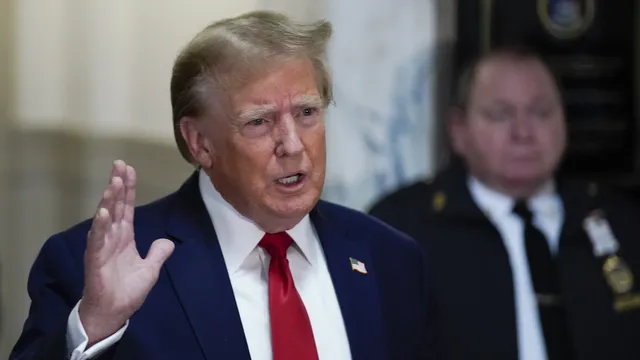GOP Divided Over Colby Nomination—Calls for Unity Grow
Vice President J.D. Vance publicly criticized Sen. Mitch McConnell’s vote against the confirmation of Elbridge Colby for undersecretary of defense for policy—a move that has stirred debate within the Republican Party over direction and priorities.
“Mitch’s vote today—like so much of the last few years of his career—is one of the great acts of political pettiness I’ve ever seen,” Vance posted on X following the vote.
Colby, a prominent national security thinker and Trump-era appointee, was confirmed in a 54-45 vote. McConnell was the lone Senate Republican to oppose the nomination, while three Democrats crossed the aisle to support it.
A Clash of Strategy Within the GOP
McConnell, defending his position, offered a sharp critique of Colby’s foreign policy framework, raising concerns about potential risks to longstanding U.S. alliances.
“Elbridge Colby’s long public record suggests a willingness to discount the complexity of the challenges facing America, the critical value of our allies and partners, and the urgent need to invest in hard power to preserve American primacy,” McConnell said in a statement.
He continued:
“The prioritization that Mr. Colby argues is fresh, new, and urgently needed is, in fact, a return to an Obama-era conception of a la carte geostrategy. Abandoning Ukraine and Europe and downplaying the Middle East to prioritize the Indo-Pacific is not a clever geopolitical chess move. It is geostrategic self-harm that emboldens our adversaries and drives wedges between America and our allies for them to exploit.”
This isn’t the first time McConnell has broken ranks on a Trump nominee—he has voted against several in recent months, signaling deeper philosophical divides within the GOP on matters of national defense and America’s global role.
Unity Over Division: A GOP Imperative
Despite differing perspectives on strategy and leadership, Republicans face a much bigger challenge—an aggressive and increasingly radical Democratic Party that controls key levers of power in Washington.
“Mr. Colby’s confirmation leaves open the door for the less-polished standard-bearers of restraint and retrenchment at the Pentagon to do irreparable damage to the system of alliances and partnerships which serve as force multipliers to U.S. leadership,” McConnell added.
“It encourages isolationist perversions of peace through strength to continue apace at the highest levels of Administration policymaking.”
Vance, who previously backed Colby during a Senate Armed Services Committee hearing, made it clear that he sees Colby as part of a necessary shift in U.S. defense thinking.
But as the 2024 election cycle intensifies, many conservatives are warning that internal fractures could play into Democrats’ hands.
Whether it’s foreign policy, defense strategy, or political style, Republicans will need to find common ground if they intend to win back control and deliver lasting change.

